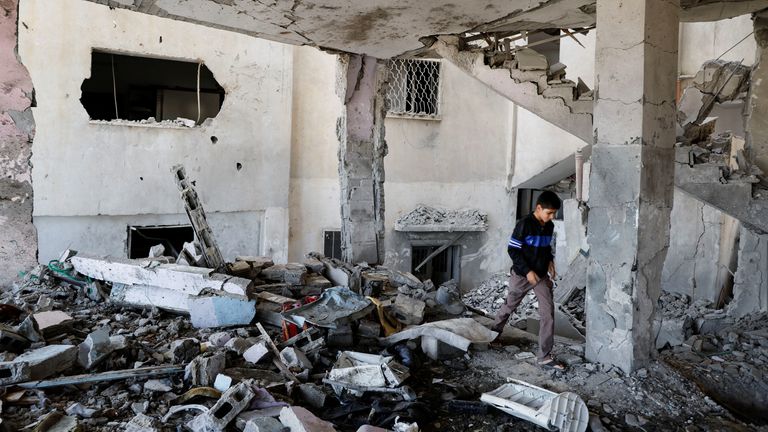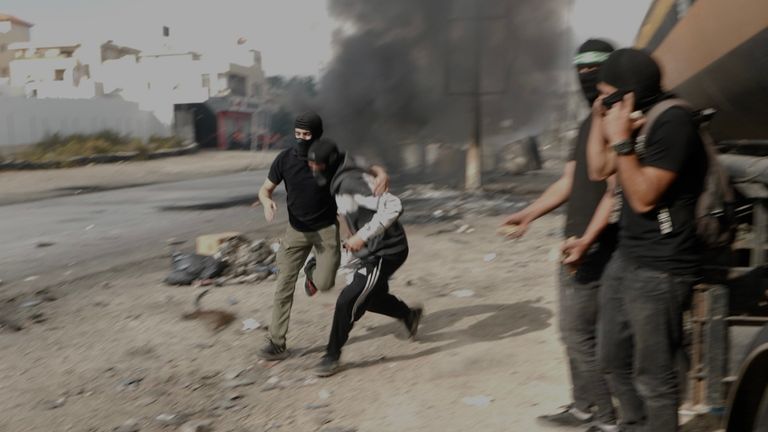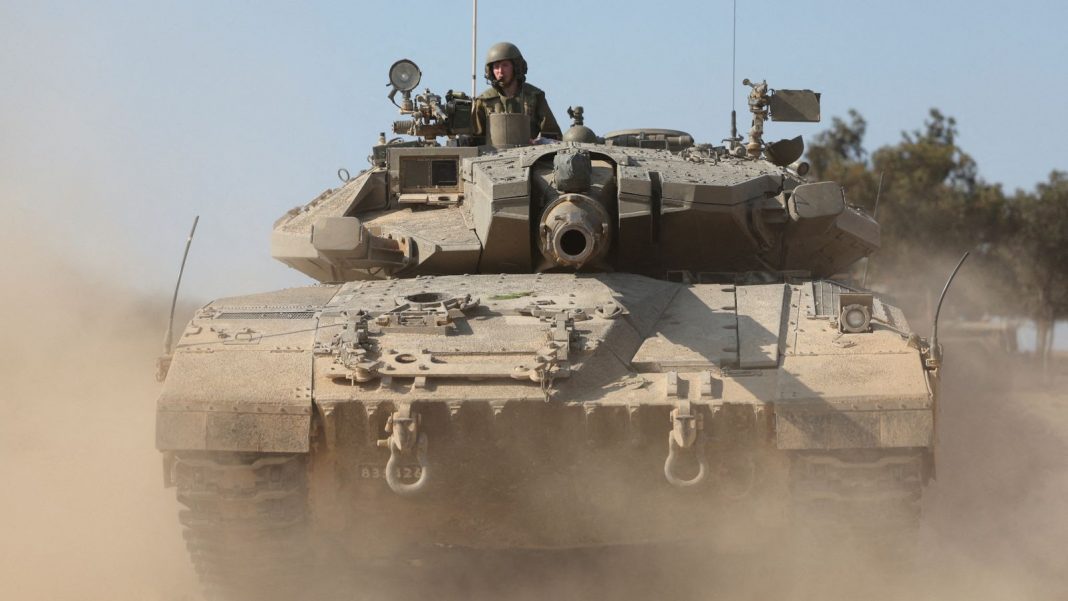With tensions in the Middle East at boiling point after Hamas triggered a war with Israel, there are growing risks of uncontrolled escalation – plunging the whole region into conflict.
The US – sensing the danger, in particular from Iran – is ramping up its military presence around Israel, announcing the deployment of additional air defence systems over the weekend on top of two carrier strike groups.
Israel carries out ‘significant’ strike – live updates
But it’s not clear whether even the might of the world’s most powerful military will be enough to prevent a melting pot of competing ambitions among rival factions from erupting into a full-blown Middle East war – one with global consequences.
In fact, no one seems to be in control of what might happen next as Israel moves inexorably to expand its offensive against Palestinian militants inside Gaza.
Israeli leaders understand the dangers but say they have no choice other than to fight after the 7 October Hamas atrocities changed the reality on the ground.
Please use Chrome browser for a more accessible video player
2:59
How did Hamas pull off attack?
More than 1,400 citizens, mainly civilians, were killed in the carnage in southern Israel and more than 200 people taken hostage, including babies – a move designed to complicate the Israeli response inside Hamas-controlled Gaza.
The fate of more than two million Palestinian civilians who live in the enclave is also a major factor.
Israel accuses Hamas of using them as human shields but every civilian death prompts criticism of Israeli tactics and plays into the militants’ hands.
Read more:
What Hamas’s release of US hostages may mean for Israeli offensive
Sean Bell: Politicians are making Israel-Hamas war worse – not better
Even before an anticipated ground assault into the Palestinian enclave, the war threatens to open new fronts.
Deadly clashes are already erupting in the West Bank, with the Israeli military launching a rare airstrike on the territory in the early hours of Sunday morning, targeting what it described as an “underground terror compound” in a mosque in the town of Jenin.
The area has been the site of heavy gun battles between Palestinian militants and Israeli forces over the past year – when the threat from the West Bank was regarded as greater than the one from Gaza.
That all changed on 7 October, but the West Bank remains a flashpoint.
Please use Chrome browser for a more accessible video player

0:41
Israeli airstrike hits mosque in West Bank
Could another militant group enter war?
Israeli troops are also locked in clashes on their northern border with Lebanon, where Iranian-backed Hezbollah militants have been increasing their attacks against Israel in a sign they are seeking to exploit the crisis.
Prime Minister Benjamin Netanyahu, visiting troops massed at the border, said he could not tell whether Hezbollah would decide to enter the war.
But if the group did, he warned: “He will make the mistake of his life.
“We will cripple him with a force he cannot even imagine and the meaning for him and the state of Lebanon is devastating.”
Please use Chrome browser for a more accessible video player

2:30
What protests on the West Bank look like
And what of Iran?
Yet Israel is increasingly stretched and Hezbollah has powerful allies, most notably Iran, which is also closely aligned with Russia.
Tehran will be watching the turmoil engulfing its enemy closely and planning its next move.
As well as backing Hezbollah, Iran’s Islamic Revolutionary Guard Corps (IRGC) is known to provide financial and military support to Hamas as well as other militias in the region.
There has not yet been clear proof the Iranians played a direct role in the planning and execution of the 7 October attack but – either way – they would doubtless be seeking to exploit Israel’s vulnerability.
A uniquely perilous conflict
In another potential frontline, Syrian media have reported a series of Israeli missile strikes against airports inside Syria, also closely allied with Iran and Hezbollah.
Israel has not commented publicly on the claims but has in the past struck Hezbollah targets inside Syria.
Each single point of friction is dangerous, but the combination of such a combustible mixture of elements is uniquely perilous and unpredictable.
One thing is clear – Israel is in no mood to ceasefire as long as the threat from Hamas remains.







